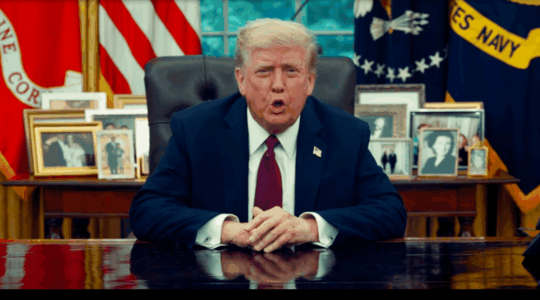WASHINGTON, Dec. 19 (JTA) — The White House Christmas tree is up, the Christmas cards have been sent, but when it comes to policy, it’s beginning to sound a lot like Chanukah.
President Bush and his Cabinet have seized upon the Maccabean message of refusing to give in to tyranny to reinforce Bush’s refusal to deal with Iran as a means of resolving Iraq’s burgeoning crisis. In at least one closed meeting, Bush made the connection explicitly.
The message is consistent with Bush’s resistance to recommendations earlier this month by the congressionally mandated Iraq Study Group that the United States engage with Iran.
Bush and Secretary of State Condoleezza Rice have rejected the study group’s calls to bring Iran and Syria into regional talks on Iraq as long as those nations continue to back terrorism and Iran does not comply with international demands to stop a program that could culminate in nuclear weapons.
The tone was set with Bush’s annual Chanukah message, released last Friday hours before the holiday began.
“After Jerusalem was conquered by an oppressive king and the Jews lost their right to worship in freedom, Judah Maccabee and his followers courageously set out to reclaim Jerusalem from foreign rule,” Bush said. “Though their numbers were small, the Maccabees’ dedication to their faith was strong, and they emerged victorious.”
It was a contrast with Bush’s Christmas message, which was focused on compassion.
“In this season of giving, we also remember the universal call to love our neighbors,” Bush said. “Millions of compassionate souls take time during the holidays to help people who are hurt, feed those who are hungry and shelter those who need homes.”
The tough message re-emerged Sunday afternoon at the Chabad-Lubavitch-sponsored “national menorah lighting” on the ellipse in front of the White House.
“This menorah is a beacon that guides us away from the forces of darkness,” said U.S. Trade Representative Susan Schwab, referring to last week’s Holocaust-denial conference in Tehran.
Schwab, the daughter of Holocaust survivors, said she was delivering the message on Bush’s behalf before she ascended in a scissors lift to light the menorah’s massive oil lamps.
On Monday night, Bush presided over the menorah lighting inside the White House.
“We pray that those who still live in the darkness of tyranny will someday see the light of freedom,” he said, accompanied by his Jewish Cabinet members: Schwab, White House Chief of Staff Josh Bolten and Homeland Security Secretary Michael Chertoff.
Bush’s linkage of the Chanukah message and Iran was explicit earlier Monday at a meeting that was expected to focus on Jewish higher education. White House Chanukah meetings change in theme from year to year; previous years have featured day school educators and rabbis.
This year, participants said, Bush seemed more interested in discussing Iran.
“A lot of the conversation centered on Iran and on the president’s conviction that they not be allowed to pick up a nuclear weapon,” said Avi Mayer, a University of Maryland undergraduate who was one of four students representing Hillel: The Foundation for Jewish Campus Life. “He said there’s no use in propping up despots, they have to be confronted and brought to task for their actions.”
Others agreed that Bush’s central message at the meeting was Iran and the global threat of terrorism.
“The tone was set by the president, who wanted to discuss what was on his mind,” said Dan Ehrenkrantz, president of the Reconstructionist Rabbinical College in suburban Philadelphia. “And what was on his mind was more international than national.”
To the extent that Bush discussed higher education, he emphasized its moral imperative against tyranny, said Julian Sandler, chairman of Hillel’s board.
“There was a common refrain of the importance of values and how values are the most valuable antidote” to despotism, Sandler said.
Bush said that despite declarations of piety from Muslim radicals now fighting the United States, he doubted that they believed in God.
” ‘Terrorists’ can’t be God-believing people,’ ” Richard Joel, president of Yeshiva University, quoted Bush as saying.
“The impression was of a resolute president with the courage of his convictions,” Joel said. “There wasn’t any sense he was about to renounce directions he has taken.”
Participants were impressed by Bush’s commitment to Israel and his graciousness to his guests, noting that he posed with each participant for Oval Office photos after the meeting, which lasted more than an hour — double the usual time for such get-togethers.
JTA has documented Jewish history in real-time for over a century. Keep our journalism strong by joining us in supporting independent, award-winning reporting.





